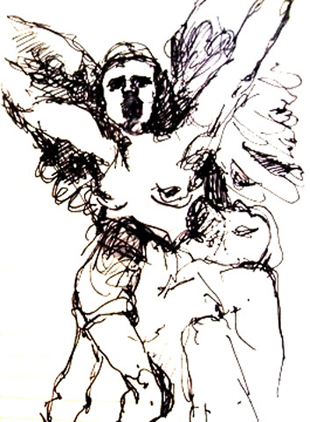THE DANGER OF COSMOPOLITISM: AN ANALYSIS OF THE END OF THE WORLD IN PLÍNIO SALGADO
Keywords:
Literatura, Estruturalismo genético, Integralismo.Abstract
This essay intends to analyze the novel O dono do mundo of Plínio Salgado as a testimony of a specific social class, following the theoretical reference proposed by Lucien Goldmann. In this work, there can be found a revealing historiographical source for understanding the ideology present in the Brazilian Integralist Action. From then on, it has been possible to observe a conservative and authoritarian speech to the development of the Brazilian society. The genetic structuralism of Goldmann was used to verify the existence of artifices and ways that may prove whether the literary works of Plínio Salgado are considered novels, and therefore are expressions of bourgeoisie.
Downloads
Downloads
Published
How to Cite
Issue
Section
License
Copyright (c) 2008 - Authors keep the copyright and grant the journal the right of first publication, with the work simultaneously licensed under the Creative Commons Attribution License (CC-BY-NC-SA 4.0), which allows sharing the trial with acknowledgment of authorship and initial publication in this journal.

This work is licensed under a Creative Commons Attribution-NonCommercial-ShareAlike 4.0 International License.
Creative Copyright Notice
Policy for Free Access Journals
Authors who publish in this journal agree to the following terms:
1. Authors keep the copyright and grant the journal the right of first publication, with the work simultaneously licensed under the Creative Commons Attribution License, which allows sharing the trial with acknowledgment of authorship and initial publication in this journal.
2. Authors are authorized to take additional contracts separately, for non-exclusive distribution of the work version, published in this journal (eg publish in institutional repository or as a book chapter), with acknowledgment of authorship and initial publication in this journal.
3. Authors are allowed and encouraged to publish and distribute their work online (eg in institutional repositories or on their personal page) at any point before or during the editorial process, as this can generate productive changes, as well as increase both impact and citation of the published trial (See The Effect of Free Access).
Creative Commons License
This work is licensed under a Creative Commons Attribution–NonCommercial-shareaswell 4.0 International License, which allows you to share, copy, distribute, display, reproduce, completely or part of the work, since there is no commercial purpose, and authors and source are cited.



